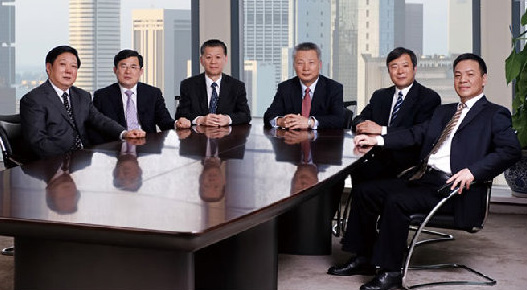Market regulator fights talent flight into private sector
Updated: 2015-06-06 10:06
By Li Xiang(China Daily)
|
|||||||||||
 |
|
Senior managers gather in a meeting room. [Photo/china.org.cn] |
While China's securities regulator is pushing market-driven reforms to reduce administrative intervention in the capital market, an unexpected side effect of that effort is that the once-powerful and attractive regulatory jobs seem to be losing appeal.
Three senior officials from the China Securities Regulatory Commission have reportedly resigned amid the latest wave of official departures from the regulatory body starting earlier this year.
Chinese business magazine Caixin reported that one official left for a Shenzhen-based private equity fund while another will work for the financial arm of e-commerce giant Alibaba Group Holding Ltd.
The CSRC did not comment on the report but said any major personnel change will be posted on its official website.
In 2014 alone, about 30 CSRC officials, both low-and high-ranking ones, left their positions, according to media estimates. Most of them went to work for private financial institutions such as mutual funds, investment banks and private equity firms.
The job-hopping by regulatory officials is not surprising as the country is pushing market reform to curb administrative powers, which could make government positions less attractive, experts said.
Limited chances for promotion, low salary and heavy workload may also contribute to the ongoing "talent drain" at the CSRC, they said.
"Such a trend will only accelerate in the future," said Dong Dengxin, head of the Finance and Securities Research Institute at Wuhan University of Science and Technology.
Chinese media reported that Xiao Gang, the CSRC chairman, recently said at an internal meeting that the regulator needed to pay attention to the career development of its employees.
Meanwhile, companies are hunting for highly skilled financial professionals as the country's equities markets and financial industry are developing by leaps and bounds with the rise of new and innovative tools and services.
"It is natural and easy for people with government background to hop to a market job as China's flourishing financial industry is creating many new job opportunities," Dong said.
He said that some may simply be driven by the wealth factor as jobs at financial institutions could offer six-or seven-digit salaries.
While personal career decisions should be respected, some experts raised concerns of possible abuse of official status by former government employees if proper regulations are not in place.
They said there is a tendency for former officials to trade their status for profit as many of them have access to important government information and can still influence policymaking, which could result in unfair competition or even corruption.
According to CSRC regulations, officials above a certain level are forbidden to work for financial institutions for a period of three years after their resignation. But some non-executive positions at financial institutions are excluded from the regulation.
Some experts are calling for more transparent appointment of officials, a removal system to strengthen public supervision and to better manage the country's civil servant system.
Related Stories
Top 10 highest-paid white-collar jobs in China 2015-05-22 07:24
Gender balance remains elusive 2015-06-04 08:40
Top 10 industries with most job-hoppers 2015-04-16 07:15
Job fairs for fresh graduates held around China 2015-03-16 08:24
Graduates swarm to job fair in Jiangsu province 2015-02-09 15:46
Today's Top News
Rescuers right ship to speed up recovery
VW says China OKs bigger stake in venture with FAW
60% of Chinese youth OK with premarital sex: survey
Guangzhou Evergrande appoints Scolari to replace Cannavaro
65 bodies found, more than 370 still missing
Ex-FIFA executive detailed bribes in 2013 secret guilty plea
Beijing 'shocked' at Nazi comparison by Philippines
Ship disaster in Yangtze River: Roundup of updates
Hot Topics
Lunar probe , China growth forecasts, Emission rules get tougher, China seen through 'colored lens', International board,
Editor's Picks

|

|

|

|

|

|






